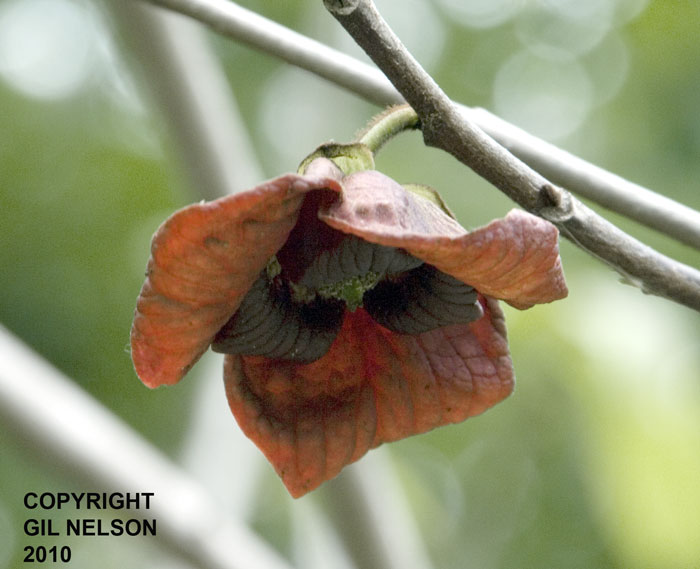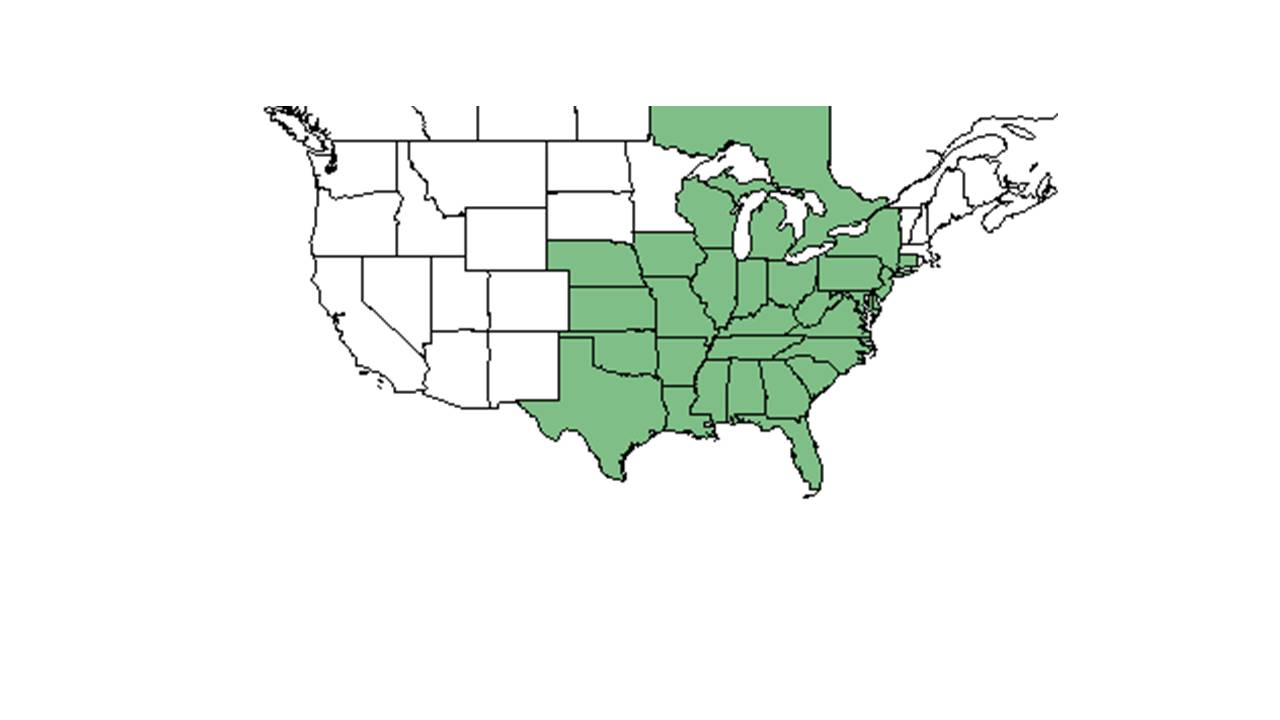Asimina triloba
| Asimina triloba | |
|---|---|

| |
| Photo taken by Gil Nelson | |
| Scientific classification | |
| Kingdom: | Plantae |
| Division: | Magnoliophyta - Flowering plants |
| Class: | Magnoliopsida - Dicotyledons |
| Order: | Magnoliales |
| Family: | Annonaceae |
| Genus: | Asimina |
| Species: | A. triloba |
| Binomial name | |
| Asimina triloba (L.) Dunal | |

| |
| Natural range of Asimina triloba from USDA NRCS Plants Database. | |
Common name: Pawpaw
Contents
Taxonomic notes
Synonym: Annona triloba Linnaeus The Flora of North America.
Description
A description of Asimina triloba is provided in The Flora of North America.
Distribution
Ecology
Habitat
This species is found in calcareous woodlands on bluffs, middle and lower slopes of mesic wooded bluffs, rich ravines with limestone outcrops, and mesic magnolia-oak-pine woods.[1] It is frost tolerant and adapted to humid climates.[2]
Associated species includes Fagus grandifolia, Hydrongea quercifolia, Dirca palustris,Liriodendron tulipifera, Magnolia grandiflora and others.[1]
Phenology
Flowers are monoecious, purple, bell-shaped and flower April to May. In north Florida they have been observed flowering in February and March.[3] The fruits are edible and are similar to a small banana or papaya.[4] This species is also about to reproduce vegetatively by root suckering.[5]
Pollination
The smell of the flowers resembles rotting carrion and therefore attracts flesh flies (Sarcophagidae), and blowflies(Calliphoridae).[6]
Use by animals
The fruit is consumed by raccoons, gray foxes, opossums, squirrels, and black bears.[5]
Conservation and management
Cultivation and restoration
Photo Gallery
References and notes
- ↑ 1.0 1.1 Florida State University Robert K. Godfrey Herbarium database. URL: http://herbarium.bio.fsu.edu. Last accessed: June 2014. Collectors: Robert K. Godfrey, A. Gholson Jr., Travis MacClendon, and Karen MacClendon. States and Counties: Florida: Calhoun, Gadsden, and Jackson.
- ↑ [[1]]Encyclopedia of Life. Accessed: March 31, 2016
- ↑ Nelson, G. PanFlora: Plant data for the eastern United States with emphasis on the Southeastern Coastal Plains, Florida, and the Florida Panhandle. www.gilnelson.com/PanFlora/ Accessed: 7 DEC 2016
- ↑ [[2]]Lady Bird Johnson Wildflower Center. Accessed: March 31, 2016
- ↑ 5.0 5.1 [[3]]
- ↑ [[4]]Illinois Wildflowers. Accessed: March 31, 2016